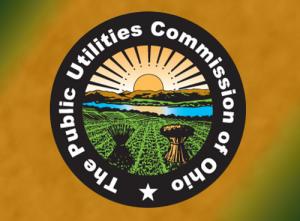Ohio Moves to Augment Customer Pricing Protections

The Ohio Public Utilities Commission has upheld recently promulgated rules prohibiting submetering entities (such as apartment buildings) from charging end-use customers more for their electricity supply than what the customer would pay an electric company under the utility’s default service rates. The ruling builds on and denies rehearing of a commission decision from December of last year in which it had reinforced its authority to intervene when a submetering entity is found to be assessing unreasonably high rates for the resale or redistribution of utility service.
In the December order, the commission sought to clarify and strengthen the test it uses when determining whether a submetering company is acting as a public utility. Under the new construct endorsed in the decision, if a submetering entity is charging a customer/tenant more than a certain designated percentage above what a similarly situated default service customer would be billed by the local utility, the commission will treat that entity as a public utility subject to the commission’s rate-making jurisdiction.
The commission had warned that it will apply the revised test regardless of whether an entity considers itself a landlord, condominium association, submetering company, or some other type of business. Moreover, the commission affirmed that there will be a rebuttable presumption that the provision of utility service is not ancillary to the landlord’s or other entity’s primary business if the landlord or other entity charges the end-use customer a certain percentage in excess of the total bill charges.
In its latest order, the commission provided guidance on just how much above default service rates a submetering entity can go before triggering commission authority. The answer to that question, in sum, is not far. After reviewing the various parties’ positions, the commission sided with those that argued for the so-called “relative price test” to be zero. That is, a submetering entity will be presumed to fall under the commission’s purview if it adds any amount to a customer’s bill above what the tenant’s bill would be if the customer were served by the local utility under default service rates.
That designation notwithstanding, the commission established certain “safe harbor” exceptions for submetering landlords. The commission said that allocation of a proportionate share of “common area” electricity costs among all tenants would be permissible. In addition, the commission stated that a landlord could include certain administrative charges to the total electricity costs billed. However, the commission cautioned that such adders must be minimal and shown to have been calculated so as to compensate the landlord for its actual billing costs. In other words, the commission said, such adders cannot be designed for the purpose of providing a profit to the submetering entity.
Recapping its refined submetering policies, the commission maintained that a submetered tenant can bring a complaint to the commission if the customer can show that his or her bill from the landlord surpasses what the local utility would have billed. Such a filing would trigger a presumption that the submetering entity falls within the commission’s jurisdiction.
Importantly, though, the landlord or other entity can rebut or otherwise challenge that inference by presenting evidence of its own that demonstrates that it is, in the aggregate, billing its residents no more than actual costs. To help both landlords and tenants navigate the submetering issues, the commission directed its staff, in collaboration with regulated utilities, to create an online bill calculator tool.
The commission remarked that although some parties had advocated for submetering and the resale of electricity to be proscribed outright, it was clear that state law allows such resales. The commission pointed out that the state’s highest court has repeatedly held that electric utilities may not forbid a landlord from redistributing electric service to a tenant as long as the resale occurs solely on the landlord’s property.
However, the commission stressed, the fact that such resales are lawful does not mean that they can always escape regulatory oversight. The commission thus confirmed the propriety of its submetering rules, as modified. Re Submetering in the State of Ohio, Case No. 15-1594-AU-COI, June 21, 2017 (Ohio P.U.C.)



